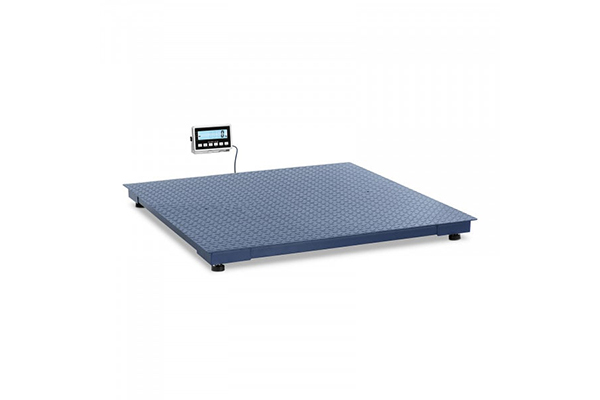Choosing the right weighing equipment is essential for accuracy and efficiency in any workspace. Understanding the differences between a Bench Scale vs Floor Scale helps you select the best tool for your specific needs, whether handling small packages or heavy pallets. This guide explores key factors like capacity, portability, and space requirements, ensuring you make an informed decision that optimizes operations and improves measurement reliability.

Bench Scale Overview
What Is a Bench Scale
A bench scale is a compact weighing device designed for use on tables or workbenches. It provides precise measurements for small to medium-sized items. Many industries rely on bench scales for tasks that require accuracy and efficiency.
Bench Scale Uses
Bench scales serve many purposes in laboratories, warehouses, and production lines. They help workers measure ingredients, count parts, and check package weights. People use bench scales in food processing, shipping, and quality control.
Bench Scale Features
Bench scales offer several useful features. Most models include digital displays for easy reading. Some have tare functions, which allow users to subtract the container’s weight. Many bench scales come with rechargeable batteries, making them portable.
Key features often include:
- Compact size for limited spaces
- High accuracy for reliable results
- Simple controls for quick operation
- Sturdy construction for daily use
A bench scale can handle a range of weight capacities, but it suits lighter loads. Users should choose a bench scale when they need portability and precision.
Floor Scale Overview

What Is a Floor Scale
A floor scale is a large, heavy-duty weighing device that sits directly on the ground. It measures the weight of bulky or heavy items that cannot fit on smaller scales. Many industries use a floor scale to handle large loads efficiently.
Floor Scale Uses
Factories and warehouses often rely on a floor scale for shipping and receiving goods. Workers use these scales to weigh pallets, drums, and containers. Floor scales also help in quality control by ensuring products meet specific weight requirements.
Floor Scale Features
Most floor scales have a low-profile design, which makes loading and unloading easier. Many models include ramps or built-in handles for added convenience. Some floor scales offer digital displays and connectivity options for data tracking.
Key features include:
- High capacity for weighing large or heavy objects
- Durable construction to withstand frequent use
- Wide platforms to accommodate oversized items
A floor scale provides reliable results in demanding environments. It suits locations where space allows for a permanent or semi-permanent installation. Users should select a floor scale when they need to weigh heavy loads quickly and safely.
Bench vs Floor Scale
Capacity
Capacity stands as one of the most important differences between these two types of weighing gear. A bench scale usually supports lighter loads, often up to 150 kilograms. A floor scale handles much heavier items, sometimes weighing several tons. People should choose a bench scale for small packages or parts. They should select a floor scale for pallets, drums, or large containers.
Portability
Portability matters in many work environments. A bench scale offers a compact design and light weight. Workers can move it easily from one station to another. A floor scale stays in one place because of its size and weight. Moving a floor scale often requires special equipment or several people.
Accuracy
Both types of scales provide accurate weighing, but their accuracy levels differ. A bench scale delivers high precision for small items. It works well for tasks that need exact measurements. A floor scale gives reliable results for heavy loads, but it may not match the fine accuracy of a bench scale for lighter objects.
Cost
Cost varies based on size, features, and capacity. A bench scale usually costs less than a floor scale. The lower price makes it a good choice for small businesses or labs. A floor scale costs more because it supports higher capacities and larger platforms. Buyers should consider their budget and weighing needs before making a decision.
Space
Space requirements differ greatly between these two options. A bench scale fits on a table or workbench and takes up little room. It suits locations with limited space. A floor scale needs a larger area for installation and operation. It works best in warehouses or factories with plenty of open floor space.
| Criteria |
Bench Scale |
Floor Scale |
|---|---|---|
| Capacity | Up to 150 kg (light loads) | Up to several tons (heavy loads) |
| Portability | Easy to move | Fixed, hard to move |
| Accuracy | High for small items | Reliable for heavy items |
| Cost | Lower | Higher |
| Space | Compact, fits on tables | Needs large floor area |
Choosing the Right Weighing Gear
Factors
Choosing the right weighing gear starts with understanding the main factors. The purpose of the scale matters most. Some users need to weigh small items for packaging, while others handle heavy pallets in a warehouse.
Load capacity is another key factor. Bench scales work well for lighter loads, while floor scales handle much heavier items. Users should always check the maximum weight their tasks require.
The environment also affects the decision. Clean rooms, wet areas, or dusty warehouses each need different features. Some scales resist moisture or dust, while others offer easy cleaning.
Budget plays a role in choosing the right weighing gear. Bench scales often cost less, making them suitable for smaller operations. Floor scales require a larger investment but offer higher capacity and durability.
Checklist
A checklist helps users avoid mistakes when choosing the right weighing gear. Consider these questions before making a decision:
- What is the typical size and weight of the items to be weighed?
- How often will the scale be used each day?
- Will the scale stay in one place or need to move between locations?
- What kind of environment will the scale operate in (clean, wet, dusty, etc.)?
- How much space is available for the scale?
- What is the budget for purchasing the scale?
- Are there any special features needed, such as data tracking or connectivity?
| Question | Bench Scale | Floor Scale |
|---|---|---|
| Small, light items | ✔️ | |
| Large, heavy items | ✔️ | |
| Limited space | ✔️ | |
| High capacity needed | ✔️ | |
| Frequent relocation | ✔️ | |
| Permanent installation | ✔️ |
Common Mistakes
Many people make errors when choosing the right weighing gear. One common mistake is underestimating the required capacity. If the scale cannot handle the heaviest item, it may break or give inaccurate results.
Another mistake involves ignoring space constraints. A floor scale needs a large area, while a bench scale fits on a table. Users sometimes forget to measure the available space before buying.
Some users overlook the work environment. Moisture, dust, or chemicals can damage certain scales. Always select a model designed for the specific conditions.
People may also focus only on price. The cheapest option may not meet all needs. Choosing the right weighing gear means balancing cost with features and durability.
Conclusion
Selecting the right weighing equipment is crucial for efficiency, accuracy, and smooth operations. Comparing a Bench Scale vs Floor Scale helps determine the best fit for your specific needs, whether prioritizing portability, capacity, or space. By considering key factors like load size, environment, and budget, businesses can avoid costly mistakes and ensure reliable measurements. Choosing the appropriate scale ultimately supports productivity and long-term operational success.
